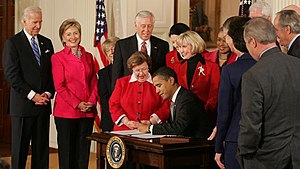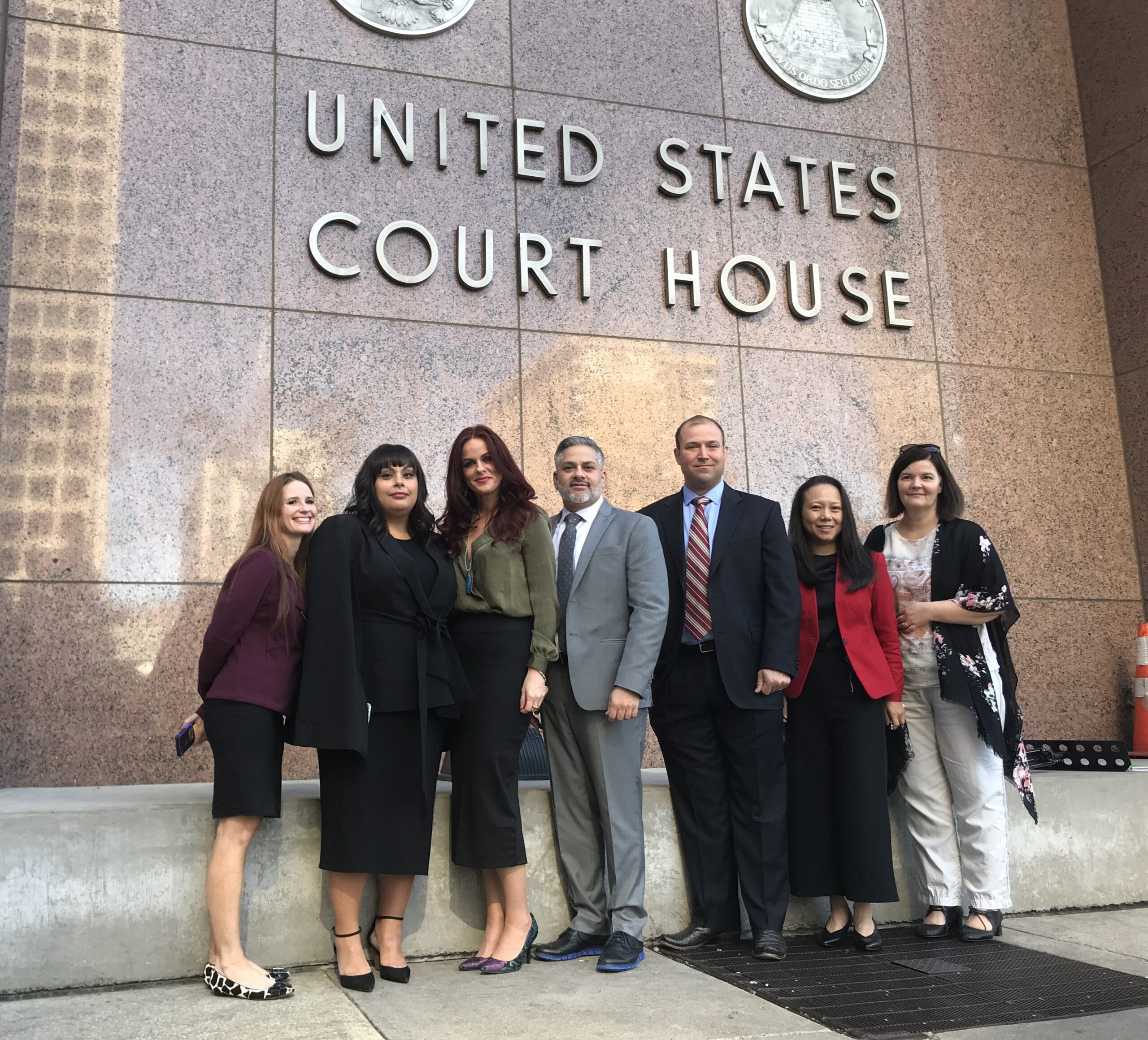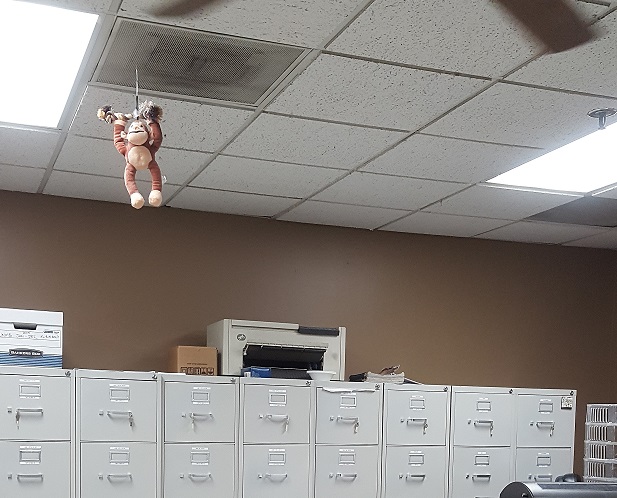North Dakota workplace discrimination trial set for 2019
A racial discrimination lawsuit brought by six workers on a North Dakota job site is set for trial in late 2019. Continue reading
Punitive Damages now more readily available in NYC Human Rights Law cases
A recent legal decision increases the likelihood that successful plaintiffs will be able to recover punitive damages when asserting discrimination claims in New York City.
Continue reading
FDNY sued for discrimination — again
Nearly three years after the city agreed to pay $98 million to settle claims of bias in its hiring of black and Hispanic firefighters, New York’s Bravest is being sued for discrimination again.
Continue reading
Valeant Unit Settles Sex Discrimination Claims For $7.2M
Law360, Los Angeles (July 12, 2016, 4:56 PM EDT) — Valeant-owned Medicis Pharmaceutical Corp. will pay $7.2 million to settle a class action alleging gender discrimination and other claims brought by female sales representatives of the medical cosmetics company, according to a final settlement order signed by a D.C. federal judge Monday. Continue reading
Hanging Monkey, Racial Graffiti, Among Evidence in Harassment Lawsuit
A stuffed monkey hanging from the ceiling in the shipping department at Univar USA’s Dallas distribution chemical facility is part of the evidence two Dallas men are providing in their lawsuit alleging racial harassment by some co-workers.
Continue reading
Gender Pay Gap

Women seemingly always have fought an uphill battle in the fight for wage equality with their male counterparts. As the number of women in the workforce has increased over the years, that gap between male and female wage earners has gotten narrower, but the gulf is still perhaps too wide compared to what it should be. Some correctly argue that any wage gap based solely on gender should not occur, especially in today’s society. Any difference in earnings of this nature falls under the category of discrimination in the workplace and has no legal reason to be allowed.
While President Obama has gained praise for his support of reducing this pay gap and supporting legislation like the Lilly Ledbetter Fair Play Act, a law that makes it easier for women to sue over pay discrimination, he has come under fire recently after a study of his staff in the white house has revealed that he pays his male staffers more than his female staffers. The numbers show that women staffers earn about eighty-seven percent of that of their male counterparts ($71,000 to $62,000), while the national average in 2011, according to the Bureau of Labor and Statistics (BLS), was around eighty percent.
Despite this example of potential discrimination from our nation’s highest office, the president and his predecessors’ support of pay equality has allowed for several advancements that are evident with the latest numbers. Younger women (aged 25-34) have narrowed the gap substantially to about ninety-two percent according to the 2011 numbers. Several legislative acts, such as the Pregnancy Discrimination Act of 1978 and the Family and Medical Leave Act of 1993, have made it more difficult for employers to discriminate against women when it comes to their needing to miss time due to pregnancies. However, women are still more likely than men to take unpaid time off of work to deal with sickness or other parenting issues in a family, a fact which reduces their wages by default.
While it is becoming harder and harder for employers to discriminate against women in their pay, the fact remains that it still happens. When it does, it is important to have the best legal representation possible to ensure that your rights are protected. The Law offices of Valli, Kane, and Vagnini are specially equipped to help any victim of this or any other kind of discrimination in the workplace. Contact them for a free consultation to make sure that your rights are protected.
Will Obama End Employment Discrimination?
President Obama seems to hold the key which unlocked the door to his victory. What is the key to his success you ask? Simply addressing long lasting social issues. Close to two times as many women than men find concerns like same-sex marriage, abortion, and Employment Discrimination as the most important issues that determined their vote, based on recently reported polling information.
When it comes to discrimination in the workplace, Presidents over the years have issued orders to protect workers against it. In 1941 President Roosevelt issued an order that prevented discrimination against any worker because of their race, creed and national origin. The Civil Rights Act of 1964 was released two decades later, which outlaws employment discrimination based on religion, sex and race. Since Obama has been in office, he has addressed issues of employment discrimination and in 2011 he agreed to pass the Employment Non-Discrimination Act. He abolished “Don’t Ask, Don’t Tell” and openly supports the gay community and same sex marriage. That’s great for Obama, but what about the rest of the country? As it stands today, 21 states have outlawed sexual-orientation discrimination, while 16 also forbid gender-identity discrimination, and many cities and counties have similar nondiscrimination laws. But only about half of the population of the United States lives in places with such laws, which leaves millions of workers undefendable against discrimination.
Who is being Discriminated Against?
Nowadays, even though the world has widely accepted individuality and self expression, discrimination against women in the workplace still occurs. It is also distributed amongst lesbians, gays, bisexuals and transgendered people. A recent research study found that in the last five years, 27% of lesbian, gay or bisexual people had been harassed at work or lost a job because of their sexual orientation. In addition to that, half of transgender people had experienced discrimination in hiring, promotion or job retention. Discrimination can also be found in their paychecks. Studies also show that they earn less than heterosexual men with the same qualifications. Pay discrimination can also be found with women who, despite holding the same positions as men, are receiving less pay than men for doing the same job. Even though studies also show that there are more women attending colleges than men, women are still given less of a chance at flourishing financially in comparison to men in the workplace.
What Can Be Done?
There is currently a Democratic bill that has long been sitting in Congress, which Obama supports, called the Paycheck Fairness Act. The Paycheck Fairness Act would require employers to show that any salary differences between men and women doing the same job are not gender-related. The bill also would have prohibited employers from retaliating against employees who share salary information with their co-workers. The bill never passed because it could not gain the support of the Republican party.
Hershey Experiences Bitter Taste of Discrimination Defeat
 Somewhere in Philadelphia, a boy wanted to go to school. He came from a broken home, a challenging background. He was, however, determined. He worked hard in school, earning his place on the honor roll. He applied to the Milton Hershey School, which provides food, housing and a top-notch education to children with special needs. The Milton Hershey School turned this exceptional child down. Was it his grades? No. According to the school, the boy was denied admission because he is HIV positive.
Somewhere in Philadelphia, a boy wanted to go to school. He came from a broken home, a challenging background. He was, however, determined. He worked hard in school, earning his place on the honor roll. He applied to the Milton Hershey School, which provides food, housing and a top-notch education to children with special needs. The Milton Hershey School turned this exceptional child down. Was it his grades? No. According to the school, the boy was denied admission because he is HIV positive.
The AIDs Law Project found out, got behind the young man and his story, and sued. Today, the Milton Hershey School is about to pay out a settlement totaling nearly $750,000. In addition, the school has issued a public apology and has offered to reconsider the potential student’s application. The case appears to have been a clear cut case of illegal discrimination.
A Painful Denial
Nine words cost the Milton Hershey School the case: “direct threat to the health and safety of others.” The school claimed that because the young man is HIV positive, he should not be allowed to live, eat and be educated with other students at Milton Hershey. Little is known about the school’s defense other than those nine words. If based solely on that, what does the school have to go on? According to the Aids Healthcare Foundation, the legal precedent for such an act was laid nearly thirty years ago, when a young man named Ryan White was expelled for being HIV positive. Now, in the 2010s, we celebrate the potential for finding a very real cure for HIV. The disease is far more manageable than it was in the days of Ryan White. In today’s reality, why would a young man with HIV pose a “direct threat to the health and safety of others?”
A History of Understanding
It has been nearly three decades since HIV first became a terrifying disease. The public’s perception of individuals was changed vastly a full two decades ago when NBA legend Magic Johnson announced he had contracted HIV. The disease was associated with homosexuality and, by definition in the mid-1980s, with homophobia. Once Magic made the announcement, it was widely accepted that HIV-positive individuals were all normal human beings tragically dealing with a potentially lethal disease. That should have been the Milton Hershey School’s point of view in 2012. However, this very real and very modern case illustrates the fact that ignorance and discrimination are alive and well in the United States and our school system.
South Florida Fire Department Under EEOC Investigation
Snug in Florida’s deep south, Davie, Florida is a town known for its Western roots, featuring a western-themed amusement park, and more citizens with horses than you can shake a stick at. Davie’s population of about 92,000 is supported by five fire stations, nos. 38, 65, 68, 91 and 104. The hundred year old town, once an out of the way western paradise, is now hitting the news as the subject of allegations of Title VII discrimination at its fire department.
A Host of Discrimination Complaints
The discrimination claims appear not to be an isolated incident: 18 Title VII claims in total are allegedly under investigation by the Equal Employment Opportunity Commission, or EEOC (the EEOC does not publicly discuss or confirm whether complaints are being investigated). Ten of the 18 charging parties are being represented by two attorneys. The most damning complaint comes from a female firefighter who claims she was unfairly subjected to full duty during the first trimester of her pregnancy. This charging party is alleging that eight (8) days after fighting a fire with her colleagues, she miscarried.
An Alleged Culture of Sexism and Bigotry
The charges center on complaints of sexism and bigotry. The most publicized involve the above case of miscarriage, as well as the story of Linda Stokoe. Stokoe was a fire inspector for the city, but was allegedly fired due to sex discrimination. The former inspector claims she was ordered to keep records of her bathroom visits, and that women were generally believed by her peers to be unfit for firefighting. Another charge alleges discrimination against a Jewish American, who claims derogatory terms and slurs were used against him.
How Does Title VII Apply?
Title VII, as amended, directly prohibits discrimination in the workplace on account of gender, race and religion, among other protected categories. The complaints described against the Davie, Florida Fire Department include racial and gender slurs, preferential treatment, and statements (direct, not implied statements) that women and some minorities are unfit to serve in the Fire Department. Since the Civil Rights Act of 1964 was instituted, nearly every generation of EEOC leadership interpreting the Act has prohibited such treatment.
Is This Your Story?
If you feel that your race, gender, religion, national origin, disability or age have played an unnecessary role at your job, or even in your attempts to find work, then you may have a claim of discrimination. For further information and a free consultation, call the law offices of Valli, Kane & Vagnini today.




